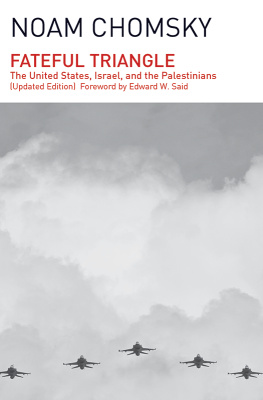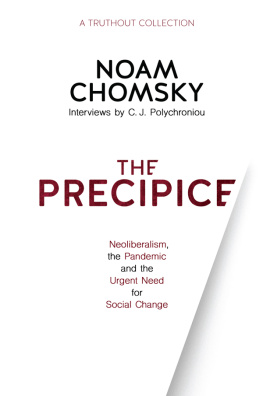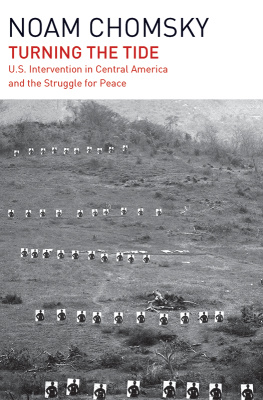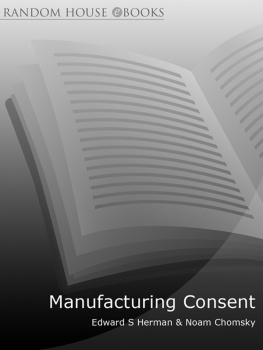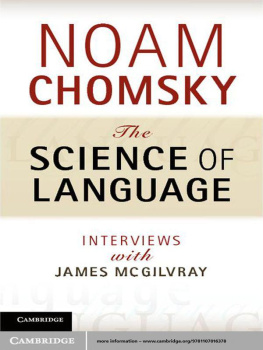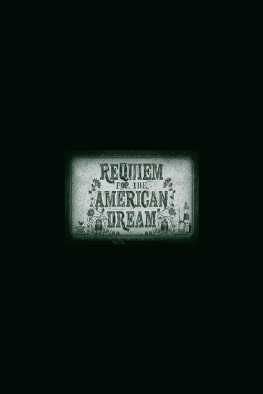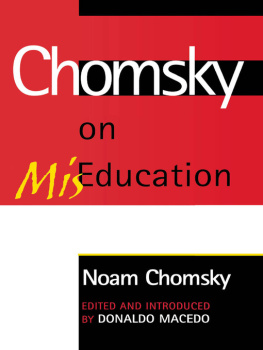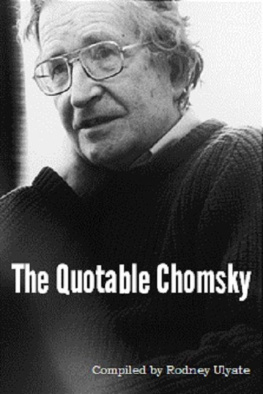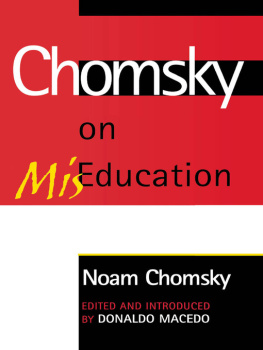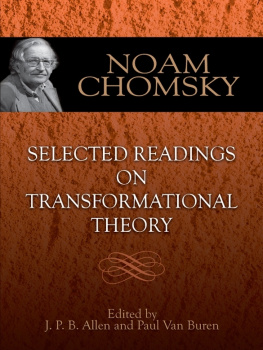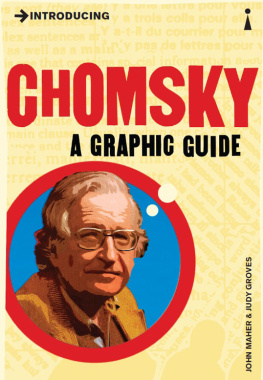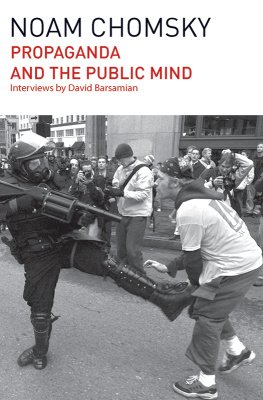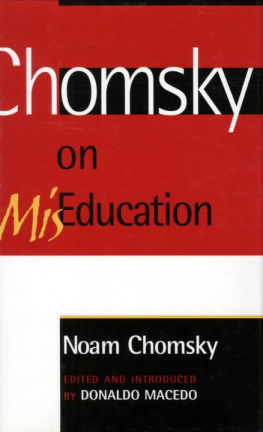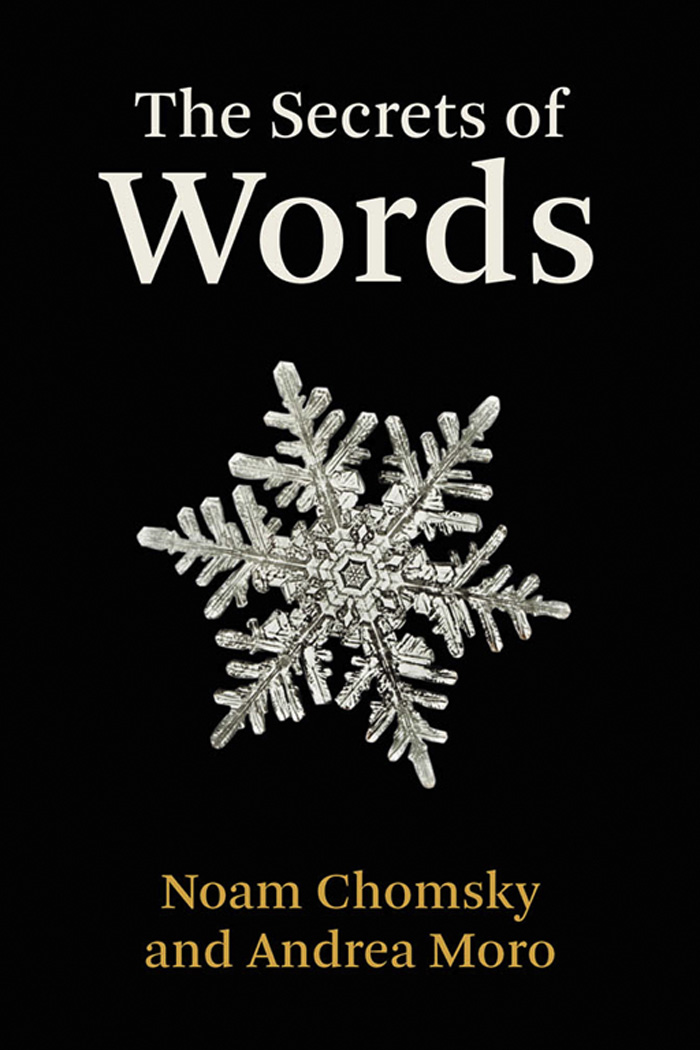
The Secrets of Words
The Secrets of Words
Noam Chomsky and Andrea Moro
The MIT Press
Cambridge, Massachusetts
London, England
2022 Valeria Chomsky and Andrea Moro
All rights reserved. No part of this book may be reproduced in any form by any electronic or mechanical means (including photocopying, recording, or information storage and retrieval) without permission in writing from the publisher.
This book was set in Arnhem Pro by New Best-set Typesetters Ltd.
Library of Congress Cataloging-in-Publication Data
Names: Chomsky, Noam, interviewee. | Moro, Andrea, interviewer.
Title: The secrets of words / Noam Chomsky and Andrea Moro.
Description: Cambridge, Massachusetts : The MIT Press, [2022] | Includes bibliographical references.
Identifiers: LCCN 2021045982 | ISBN 9780262046718 (hardcover)
Subjects: LCSH: Chomsky, NoamPhilosophy. | LinguisticsPhilosophy. | Chomsky, NoamInterviews. | LinguistsUnited StatesInterviews. | LCGFT: Interviews.
Classification: LCC P85.C47 A5 2022 | DDC 410dc23/eng/20211203
LC record available at https://lccn.loc.gov/2021045982
10987654321
d_r0
Contents
The Secrets of Words
AM Hello, Noam. It is very nice to finally see you. We were supposed to have gotten together many months ago: the pandemic prevented it, but at least were able to meet now, even if remotely. If its all right with you, I would like to start our conversation with something that really struck me when I was your student at MIT in 1988. In class, you quoted Yehoshua Bar-Hillel on the relationship between technology and language as it was experienced in the early 1950s; it was something he had written some twenty years after the fact. At the time, what he had said was shocking to me, and I think it still pertains in an interesting manner to the contemporary world. If you dont mind, I will just read it out loud before asking for your opinion on it today.
Bar-Hillel, more specifically, was talking about the atmosphere and the ideas circulating at the Research Laboratory of Electronics at MIT in Cambridge, Massachusetts. This is the key passage: There was an ubiquitous and overwhelming feeling around the Laboratory that with the new insights of cybernetics and the newly developed techniques of information theory the final breakthrough towards a full understanding of the complexities of communication in the animal and the machine had been achieved. Linguists and psychologists, philosophers and sociologists alike hailed the entrance of the electrical engineer and the probability mathematician into the communication field. I would like to ask you if, after so many years, you could again offer your opinion on this.
NC Well, as you remember, Bar-Hillel was saying that the euphoria was misplacedthat what had been confidently anticipated hadnt happened. He was referring to the situation in the early 1950s. Thats when Morris Halle, Eric Lenneberg, and I were just getting together and meeting as graduate students at Harvard. And that was in fact the atmosphere at Harvard, and in the Cambridge environment. There was a lot of excitement. It was against a sociopolitical background. Its important to recall that before the Second World War, the United States was kind of an intellectual backwater. If you wanted to study physics, you would go to Germany; if you wanted to study philosophy, youd go to England or Vienna; if you wanted to be a writer, youd go to France. The United States was kind of like some small town, off in the periphery. I mean, there were things happening, great scientists. But it was at the margins.
The war changed all that, totally. Europe was, of course, devastated. The United States gained enormously through the war. Industrial production quadrupled. A lot of scientific discoveries and technological advances were made during the war. After the war, the United States basically owned the world. This seeped into general consciousness: the Europeans were finished, were taking over. And it was against that background that the new developments Bar-Hillel was describing came to the fore and became part of a feeling that were really going forward, were leaving the old world behind; now were starting out on a new path, far beyond what anyone else has conceived. This showed up in all kinds of domains, including this one. Now I happened to be located in CambridgeHarvard and MIT. Claude Shannons information theory was developed from wartime research. Along with Norbert Wieners cybernetics, it looked as if a new era was coming. We could now turn to the study of what used to be called in old-fashioned days the study of mind. But now we will deal with it by the methods of science. And there was enormous excitement.
I should say it is pretty similar today, with the enthusiasm and excitement about artificial intelligence, deep learning: somehow thats going to solve all of the problems. And its even more problematic. Its not achieving scientific results, in our domains at least. But the atmosphere is very similar.
And I should mention that at the time, around 1950, there was another source, an independent source, of enthusiasm and euphoria: that was American structural linguisticswhich in fact wasnt represented in Cambridge. There were no American linguists there. I guess probably I was the only one, thanks to my undergraduate background. Roman Jakobson was there from the European structuralist tradition, but no American structuralists. But elsewhere in the country there was a fairly tightly knit group of structural linguists who had accomplished a good deal, and they felt that, if you read over the material from back then, they had really finally managed to establish linguistics as a sciencea taxonomic science it was calledfor the first time. They had procedures and analyses that were well defined: you could apply them to any language, any materials, and you get the phonemic analysis, the morphology, and a couple words about syntax, but the field was basically done. And in fact, I recall, I was a student at the time, that the feeling among the students was: this is a lot of fun, but what are we going to do when we apply the procedures to every language? Would it be over? And that was the general assumption.
So, there were two separate kinds of consensus, each enthusiastic, and each with the sense that there had been great accomplishments. In one case, the field was pretty much finished; in the other, we were going on to create a new world. It fell apart in the 1950s. Neither worked. With the Cambridge consensus, it was possible, when the proposals were clear enough, to investigate them. For example, the prevailing idea was that language was a Markovian system of production. That was precise: you could prove that its false. Others were vaguer. You just had more indirect arguments that they were on the wrong track. The structuralist consensus just didnt work. There was a sharp clash, which became more and more prominent, between procedures of analysis, which is what the field was about, and explanatory theories. It turned out that if you tried to develop an explanatory theorywhich is what a generative grammar isif you tried to construct a generative grammar, an explanatory theory, the elements in it could not be reached by the procedures. So, there was a gulf between trying to develop an explanation of phenomena of language and applying procedures of analysis. The projects were inconsistent. What finally prevailed over time was the effort to find explanatory theories.
It is striking to see that we are in a very similar situation today. The excitement coming out from Silicon Valley, basicallylots of hype and propaganda about how amazing the achievements arehas a certain similarity to the technological euphoria that Bar-Hillel was describing. And that, again, by the time he described it, he thought had been undermined, and was a mistake.
Next page

